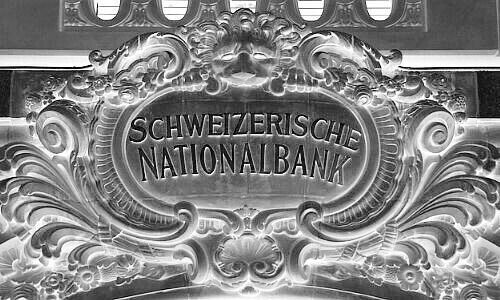Russia’s invasion of Ukraine threatens to hit the Swiss economy at a time when prices are rising sharply, leaving little, if any, scope for interest rate hikes.
Switzerland's inflation is not nearly as dramatic as in Turkey, where consumer prices shot up over 50 percent. But the latest CPI readings clearly show that prices are also rising steeply here.
Annual inflation reached 2.2 percent in February, the fastest since 2008, with oil and gas prices contributing one percentage point to the increase.
As finews.com wrote in February, the federal statistics office cited prices of second-hand automobiles as one of the contributors, rising ten percent in January from a year ago. This is likely reflecting higher demand due to supply chain constraints.
In February, used car prices rose 13.1 percent, according to the Federal Statistics Office.
While an inflation rate of 2.2 percent is above the Swiss National Bank's upper target of 2 percent, economists do not expect rapid rate hikes in Switzerland anytime soon. In fact, core consumer prices which exclude energy, fuels as well as fresh and seasonal products, rose a more modest 1.3 percent in February over last year, and something the bank is likely to take into account.
While it remains to be seen, inflation is expected to fall back below the 2 percent mark as early as the second half of the year, and below 1 percent in subsequent years.
Still, in each of its past four meetings, the SNB raised its inflation forecasts for 2022. Given recent price developments will they do so again in their next policy announcement on March 24, and if so by how much?
A rate hike to stem inflation is ultimately a limited tool because of the nature of Swiss inflation. For the time being, inflation pressures are of an imported nature against which a rate hike would be ineffective. In fact, inflation on domestic products grew 1.3 percent in February from a year ago, while prices for imported goods were 4.9 percent more expensive over the same time period.
The Unknowns
Clearly, if oil and gas prices continue to rise steeply, it will lead to higher inflation in the coming months, but won't prompt the SNB to raise interest rates, as UBS economists write. Because the primary effect in Switzerland would be shrinking disposable incomes and higher costs at companies, hampering the economy but dampening inflation.
Euro Parity
With inflation under control in recent years, the SNB was able to focus largely on the Swiss franc exchange rate which, for an export-oriented economy, is critical. In the inflation debate, the Swiss franc exchange rate is also significant, although in an inversely positive way. A falling franc exchange rate tends to have an inflationary effect, as it makes imports more expensive.
In times of geopolitical tension, the franc tends to rise against major currencies, as happening now, with parity with the euro very close at hand. This makes importing from the EU cheaper in Switzerland. The euro which was worth about 1.11 francs a year ago, is now trading at 1.01.
Open Russia Question
The economic ramifications of the economic war between the West and Russia is still largely an open question. Should President Vladimir Putin restrict oil and gas flows, prices will rise higher still with obvious inflationary effects, without mentioning the impact on the economy.
There are few indications that the SNB will announce interest an rate hike at its next quarterly assessment, despite the sharp rise in prices.




































